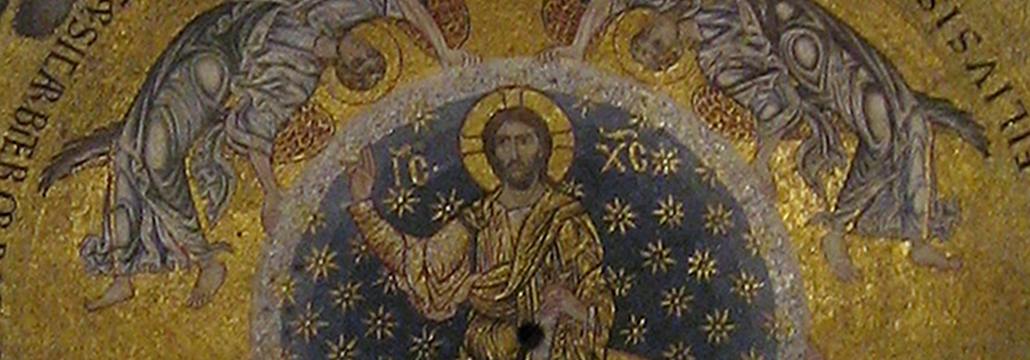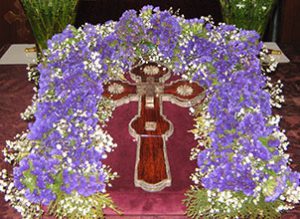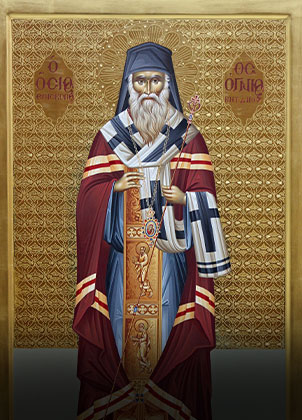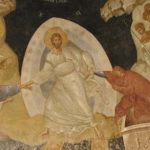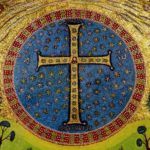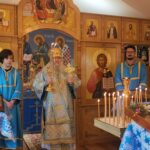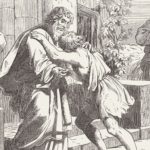Sermon on the 3rd Sunday after Pentecost
In the name of the Father and of the Son and of the Holy Spirit.
“Look at the birds of the air, for they neither sow nor reap nor gather into barns; yet your heavenly Father feeds them. Are you not of more value than they?… So why do you worry about clothing? Consider the lilies of the field, how they grow: they neither toil nor spin; and yet I say to you that even Solomon in all his glory was not arrayed like one of these. Now if God so clothes the grass of the field,… will He not much more clothe you, O you of little faith? (Math. 6)
Today’s Gospel reading speaks of God’s Providence acting in the world.
Our society believes in science. We are used to believing that the scientific perception of the world is the only correct, since it is based on facts and experiment; however, the scientific worldview is something deeply alien to the idea of God’s Providence. The modern scientific perception of the world evolved from Deism, a religious and philosophical doctrine which appeared in the 17th century in Masonic circles.
Deists regarded the universe as a vast machine, created and set in motion by God. It continues to operate according to unchangeable natural laws, without any divine intervention; like a huge clock where every little part has its function and moves in accord with the others.
Deists believed that the machine of the universe is a perfect creation by the Divine Creator. Being perfect it does not require any repair or corrections; once set in motion it has no need in the Creator, like a clock having been wound up runs by itself. Thereby God doesn’t intervene with the functioning of the world in any way, allowing it to run according to the laws of nature which He configured when He created all things. Deists didn’t believe in miracles, which they considered an unnecessary and senseless interference in the regularity and order of the universe.
We dwelt upon the philosophy of Deism, because it lies beneath the modern scientific perception of the world, by which all of us are influenced to greater or smaller extent, willingly or not. However, in our time, the deistic idea of a Creator has been rejected, and thus Deism became atheism.
The deist concept of the world independent from God, governed only by natural laws, has penetrated into our consciousness and we should get rid of it by all means.
Then what is the Christian perception of the world? Let us hear the words of St John of Kronstadt: “The Lord rules wonderfully and mightily over the material world by means of His Wisdom. As the soul carries its body and gives life to it, so God also carries the whole universe, giving life to it through His Holy Spirit.”
So, for a Christian the world is not a self-operating machine, but an organism, where God gives everything life and motion.
St John continues: “God works in our body, in its natural functions, supporting it, feeding it, rearing it. He also acts in the grass, or in the trees, or in the animals; clothing the grass, rearing the trees and adorning it with leaves and fruits, feeding the animals and rearing their bodies.
God is equally in the infinitely great and in the infinitely small, not being limited either by the one or the other, but is wholly present in everything, being indivisible and above all.”
The world is constantly in the hands of God’s Providence. God’s power sustains the universe and is present in all natural processes. Constancy of the laws of nature is due to the action of the live will of God. “He gives to all life, and breath, and all things…. in Him we live, and move, and have our being.” (Acts 17)
The scientific model of the world is a great fallacy, since it claims to give a true concept of the world without taking into account the only force acting in the world – the Providence of God.
Man in the first place is the object of God’s Providence. The Bible says: “For His eyes are upon the ways of men, and he considereth all their steps.” (Job 34)
The most astounding is that the Providence of God doesn’t limit the free will of men, but guides the world in an ineffable way to His own goals. God leaves even those who oppose Him, ungodly men and demons, to act according to their intentions. But through Divine Wisdom He turns their evil actions to serve finally to good, both in regard to every individual and to the whole world.
Observing God’s Providence acting in the world we become firmly convinced that we ourselves are not deprived of it, that everything, even the most insignificant in our life, both outwardly and within, doesn’t happen by accident, but is arranged by God’s wisdom. Those who think that they can be infected from receiving Holy Communion obviously don’t believe that everything in the world is accomplished by God’s power.
Therefore with faith and full devotion we commit ourselves, our loved ones and all our life into the hands of the all-wise and all-merciful God.
Amen.

